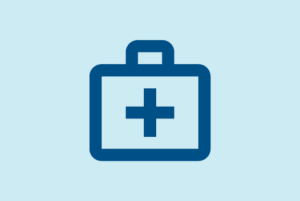On Tuesday, voters in California and throughout the nation will be able to make changes in their elected leadership, shuffling the political deck and sending a signal about their priorities for their city, county, state, and nation.
This year’s midterm election holds additional weight for Californians and the hospitals that serve them.
First, in Southern California, two ballot initiatives — in Inglewood and Duarte — will determine whether a $25 per hour minimum wage for certain health care workers in those cities will go into effect this year (these ballot initiatives also include operational restrictions for affected hospitals, such as the inability to lay off workers). If approved, the law would apply to all hospitals in Inglewood and Duarte.
CHA, along with the Hospital Association of Southern California, is actively running aggressive and high-visibility campaigns in each city — No on Measure J and No on Measure HC. These include an expansive paid media campaign with targeted digital and social ads, as well as cable, radio, print, and billboard advertising in English and Spanish. The campaign has also been advancing an earned media effort and a comprehensive field operation that includes phone calls, texts, and home visits to voters.
Still, the fight to oppose these unequal measures — advanced by SEIU-UHW — faces an uphill climb. The union is running aggressive campaigns in each city to urge voters to support the measures, and the political makeup of the cities means they had a significant advantage at the outset.
CHA will share results from these initiatives as soon as they are available. Following the election on Nov. 8, votes must be certified by Dec. 8 and if our opposition to these initiatives is unsuccessful, hospitals will have a mere 10 days from the city councils’ certification to implement the new laws.
Second, California’s state Legislature is likely to see more than 30 entirely new Assembly members and senators. That’s a full 25% of the Legislature, and an opportunity and necessity to educate new lawmakers about the role of hospitals in their communities and why they need support at this vulnerable time.
Finally, polling and political pundits suggest that there will be a new balance of power in Washington, D.C., with the smart money on Republicans taking over at least the House of Representatives. A divided federal government portends many stalemates and lack of action on Capitol Hill. That can be helpful when trying to avoid cumbersome policies that detract from patient care, but it can also mean no additional relief for hospitals struggling to find the resources to meet their patients’ needs.
It’s likely that we won’t have complete results for weeks or even months after the election, but we should have a sense of where things might shake out in the days immediately following. Stay tuned to your inboxes for our initial analysis and next steps once the voters have spoken.


